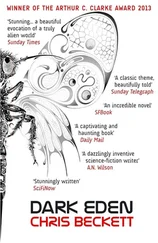“And the third? You said there were three things.”
“Don’t tell anyone else what you told me.”
“Not even Tina or Ginny?”
“No, not even Tina or Ginny,” I said. And then, because I wanted to leave nothing to chance when it came to Katie Hayward’s safety, I added, “And not Stephen. Under no circumstances tell Stephen what you just told me.”
“Oh, yeah,” she said, “he would be the last person I’d tell.”
I STARTED READING the Vermont newspapers online that autumn, peeking at them every day to see if there was any news about Stephen or any quotes from his attorney, Aaron Lamb-a name that struck me at some moments as appropriate, others as ironic. I watched to see if Katie’s revelations about the gun and the nightgown would appear in the papers, but they didn’t. A friend of mine who is a lawyer for the City of New York told me that unless the case went to trial, I wouldn’t read about them. She said that didn’t mean that the information wasn’t being used as part of the investigation into Stephen Drew or that detectives weren’t trying to (her words, not mine) turn up the heat on the now officially retired minister. But she said that from everything I had shared with her, unless they could link him to the gun, an indictment wasn’t likely.
“But it’s so clear that he did it,” I told her one evening over a glass of wine at a bar at the South Street Seaport just after Columbus Day weekend. Outside, the shoes of the businesswomen and-men clattered along the cobblestones as, invariably, they chatted on their headsets and PDAs.
“Well, maybe it’s clear to you,” she corrected me. “But it sounds to me that unless he confesses, he’s going to get away with it.”
I considered calling that Vermont state trooper who had interviewed me, and periodically I found myself fiddling with his card, which, for reasons I couldn’t quite pinpoint, I kept in my purse. I considered making another statement, a second one, but what more really could I say? Stephen refused to own up to his guilt to me and had told me nothing I could add. I could make sure that Katie had shared her ideas with the investigators, but there really wasn’t any doubt in my mind that she had. By now they knew about the gun and the nightgown and the dog.
Stephen did try to reconcile with me that autumn, but only one time with real effort. He called twice and left messages, and he e-mailed me once asking me whether it might be possible to have a conversation. The messages were not insincere, but nor were they impassioned. They were a little chilly and a little tame. Only in one instance did he make an effort in which I glimpsed the iridescence that hovers like a halo amid an aura, and even that was but a passing glance. It was in a handwritten note on a piece of yellow legal paper that he mailed me. Most of the individual letters on each line were so small and controlled that I wondered if he had had a contest with himself to see how many words he could wedge onto the page. He began by reiterating how I should, at the very least, see him once more. Face-to-face. See what it felt like for the two of us to be together, see if there was a hint of the fire we had once felt in each other’s presence. He had moved out of the parsonage by then and was renting an apartment in Bennington while he decided what to do next with his life. He never came right out and said that he was confident he was never going to be tried for murder, but it seemed to me that he was behaving that way. He was almost arrogant. I think he had moved to Bennington, rather than anywhere else, to flaunt his freedom before the very criminal-justice system that wanted to arrest him. Still, it was clear he didn’t plan to settle there. He said the lease was short-term because he was contemplating a move to Manhattan, where he would try to find a new career. He wrote that he thought he was going to become a social worker and, if necessary, he would return to school to get his M.S.W. He claimed that he wanted to work with the homeless. He had visions of himself rolling up his sleeves and doing the sorts of work he should have been doing when he had been in the pulpit. He insisted this wasn’t atonement. Altogether, it was a lot of information, and at first it felt rather formulaic to me. But then I came to a paragraph in which I saw his relentless self-control quiver: “If I make it to eighty, I wonder who will look back with me at the footprints I’ve left on the beach. I presume both that I will be the only one gazing at them and there will be but one set. This isn’t another plea for you to hear me out (I’ve already done that) or a plea wrapped in the most transparent of gauze that you’ll reconsider your distance; it is merely an acknowledgment that I am conscious of the tendency I have to wall myself off from others and that this inclination may not serve me well in the end.” I might have been more sympathetic if he had used the word fear instead of the word presume . But he hadn’t. Stephen Drew really didn’t know from fear, and whatever vulnerability he might briefly or inadvertently reveal, he would mask the moment he understood what he had done. I never responded to his phone calls or missives, until eventually they stopped coming. Like all things mortal, they simply disappeared.
IT WAS AMANDA who said most firmly that I was being ridiculous about Stephen. She came to New York to meet with a gallery owner who represented Norman’s birds, and as she does always when she visits, she stayed on the daybed in my loft. That evening, while smoking a cigarette and sipping a diet soda watered down by melted ice, she told me, “You took in too much of our parents’ quarrels. You’re thinking too much about the fights that young girl must have seen over the years in Vermont. You’re looking for a reason not to commit.”
She was wearing a smock dress that fell to midthigh and a cardigan sweater that was navy blue. But I could see from her knees that she had put on a little weight. Not a lot, but some. Clearly she was in a better phase than she had been back in August. Somehow she had learned that I’d called both her therapist and her nutritionist, but she hadn’t been angry with me. Her hair had regained a bit of its natural luster.
“He had been sleeping with Alice Hayward and hadn’t told me,” I reminded her.
“So what? Think of all the angels and devils you’ve slept with.”
“And he killed a man.”
“He killed a man who had beaten his wife for years and just strangled her with his bare hands. Not a great loss for humanity.”
“I could never feel safe with him,” I said.
“You spend too much time reliving our childhood and adolescence.”
“Funny. I told Katie Hayward just the opposite. I told her I don’t.”
“And these days it’s not just ours you relive. It’s hers, too.”
“Hers? Katie’s?”
“Yup, that orphan. The kid.”
I thought about this. “Actually, it’s Alice I seem to think about most.”
“Maybe. But I know you. You’re fixated on the Haywards and you’re fixated on the Laurents. You think about us. You and me and-I don’t know-pick a night. Pick the night we cowered behind the living-room couch.”
I sipped my wine. Here was a memory that-try as I might-I was never going to repress. I was in the third grade at the time, and so Amanda had been in the fifth. It was a weekend, probably a Saturday night. Our parents had been out that evening, and our father had just returned from driving the baby-sitter home. Both our mother and father had been drinking heavily, and there must have been an angel looking out for that baby-sitter that night, because otherwise I can’t imagine how she would have survived the three-and-a-half-mile drive to her house. Our mother had kissed each of us sloppily as she had checked in on us in our bedrooms, accidentally waking us both with her awkwardness, and then stumbled back down the stairs. I remember vividly how it sounded as if she’d fallen the last few steps. Amanda and I hadn’t planned to get out of our beds when our parents returned, but we had both heard the slight tumble and gone to investigate. We saw that our mother was already up. She was standing in the kitchen between the sink and the dishwasher, leaning against the counter the color of fossils. She had a juice glass in her hand, half filled with scotch. She was in her own world and didn’t realize we were watching. When we heard our father pulling in to the driveway-squealing to a stop and splintering one of the wood panels on the garage door with the sedan’s bumper-my instinct was to race back upstairs to my bedroom, but Amanda grabbed me by the wrist and dragged me into the living room.
Читать дальше











